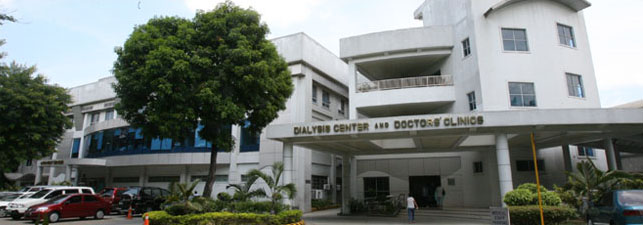Anticoagulant with bacteria seen to cause dialysis chills among NKTI patients
MANILA, Philippines—One of the anticoagulant brands at the National Kidney Transplant Institute tested positive for bacterial growth and might have caused the chills of 44 dialysis patients there, the head of the Philippine Network for Organ Sharing said on Wednesday.
“The only reason I got that (information) is because I got a text from NKTI that they had a positive culture in one heparin brand,” Antonio Paraiso said in a forum in San Juan City on Wednesday.
Paraiso described heparin as an anticoagulant used to prevent blood clotting in patients during dialysis treatment, among others.
Paraiso said he did not know what particular brand this was, but that “all other examinations (on the other heparin brands) were normal, no growth whatsoever.”
“(The anticoagulant) is injected into the system or into the patient. And if what you get is contaminated, then the guy will get the microorganisms,” he said, adding that the chills could be the body’s reaction to such.
“Chills usually precedes (sic) a rise in temperature. What you’re actually doing is generate heat, and as you generate heat it’s supposed to protect you from anything you’re fighting,” said Paraiso, a doctor whose expertise is nephrology.
He admitted there was still a “need to connect the positive culture with the patient who had chills,” but that “right now, it looks as if that’s what’s being blamed.”
“It’s probably safe to say yun ang dahilan (that’s the cause),” he added.
Asked where the bacteria could have come from, Paraiso said substances that were injected in people were the result of processes.
“They are subjected to rigid screening procedures before they are put out in the market. But there are also failures in those procedures. So for this product, as to how well they executed their protocols, that’s something else,” he said.
Asked whether it was possible for the bacteria to have come from external factors, Paraiso said “Yes.”
“That’s possible. (That the bacteria was derived) because humans were clumsy,” he said.
Despite the incident, Paraiso commended the NKTI for “sacrificing a lot.”
“Stopping dialysis treatment for a good number of days—big income is lost there,” he said.
He said the hospital administration also “goes to the extents to correct what they perceive to be a problem.”
“They had to practically redo mga tiles na hindi maganda paggamit (that were not used well),” he said.
“You can see their effort to attain excellence,” he said.
RELATED STORIES
NKTI asks FDA to verify finding that fluids caused dialysis chills
PhilHealth, NKTI to give qualified patients kidney transplant package
SC junks civil liability of ex-NKTI hospital chief in organ transplant case
